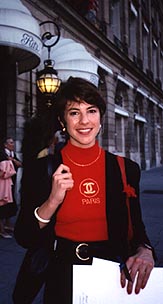
The following is a series that profiles leaders in the complementary & alternative medicine field. We hope to introduce personalities who played an important role in opening the doors to new medical concepts and practices in the U.S.
In this edition, we cover the panoramic life of Frederick Kao (1919-1992), a scientist, educator, and leader in the movement to encourage Western medicine to study traditional Chinese medicine. Founder of The American Journal of Chinese Medicine, Dr. Kao continues to influence researchers and clinicians around the world.
His is an extraordinary story of a young Chinese boy with a dream. From rural China, Dr. Kao fostered a vision that took him to medical school in China and graduate school in the US and on to an illustrious research and teaching career that led to recognition by such institutions as the Karolinska Institute in Sweden, and The World Health Organization. He is remembered, in addition to his research achievements, for having legitimized Chinese medicine in the West by linking scientific research and alternative medicine, using the academic and scientific rigor of leading medical research institutions.
The following description of his life and career is a text of remarks by John Kao, MD, at the Frederick Feng-tien Kao Memorial Service held September 12, 1992 at the Garden City Community Church in Garden City, Long Island.
My father was born, by the Chinese calendar, in the Year of the Horse on January 29th, 1919 in a farming town called T'ing Hsien right outside of what is now the city of Beijing. He liked to joke that since horses born in the evening had the privilege of being fed and rested due to the late hour of the day, that he should have been born to a life of leisure. The facts speak otherwise. All of us who knew him realize that he instead lived a life of great vigor and productivity.
He grew up on a farm and it is rather interesting to hear his description of life on the farm. From his as yet unpublished memoirs, he writes,
My first memory is of someone picking me up while I was crawling at the bottom of a huge sand dune. I may only have been a few months old. At that age, every thing seemed large. It was a cool summer evening and I didn't have a stitch on but I was comfortable and not ashamed. It's funny that that comfortable feeling of that particular evening always comes back to me. A comfortable and satisfying sensation of the light evening breeze sweeping my back. It was almost as though a gentle whisper flowed through my body saying, 'Fred, grow up and be a good man.'"
China, at the time my father was born, was in great turmoil as was in fact the entire world. As he writes in his memoirs, "I was born eighty days after Armistice Day W.W.I. Ten days after I was born Woodrow Wilson was proposing the League of Nations at the Peace Congress held in Paris." He states further that this was a time of great conflict in the encounter between East and West. He writes, "The invasion of China by foreign powers in the 1920's and 30's was not dissimilar to the situation created by two weather fronts, hot and cold, heading towards each other. The consequences would certainly be a storm."
To indicate something further about the state of thinking prevalent in China at the time, he tells an amusing anecdote about speaking with his grandmother. He says, "My grandmother used to tell me when I was a few years old that the heaven was round and the earth square. 'What happens when one comes to the edge of the earth?' I asked. Grandma would say simply 'You fall off.' 'To where?' I asked. Again, she said 'Who knows.'" This evokes a central theme of my father's life: he was already asking questions like a scientist and was, in a sense, prepared to fall off the edge of the world in an attempt to find a new world.